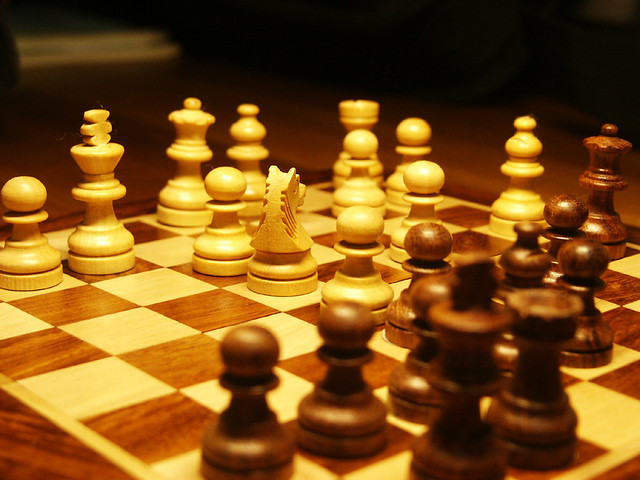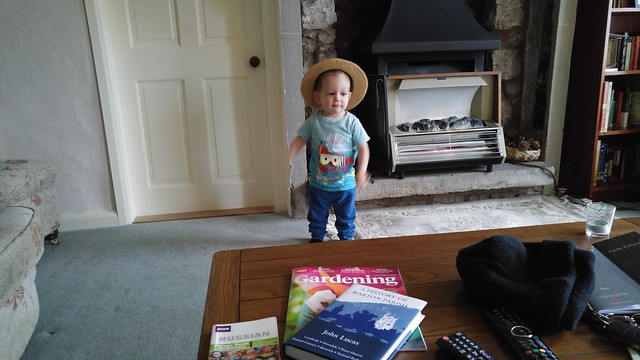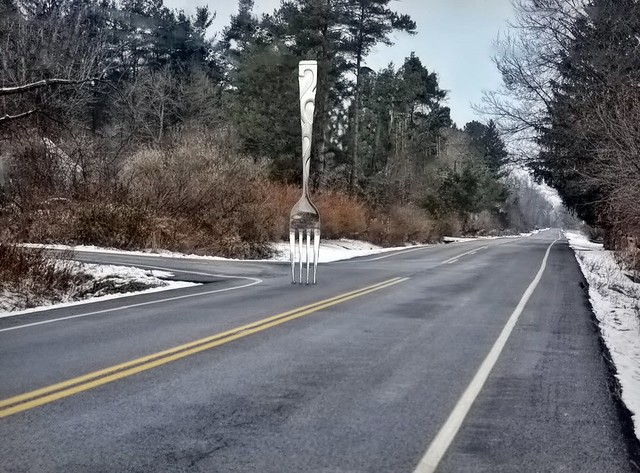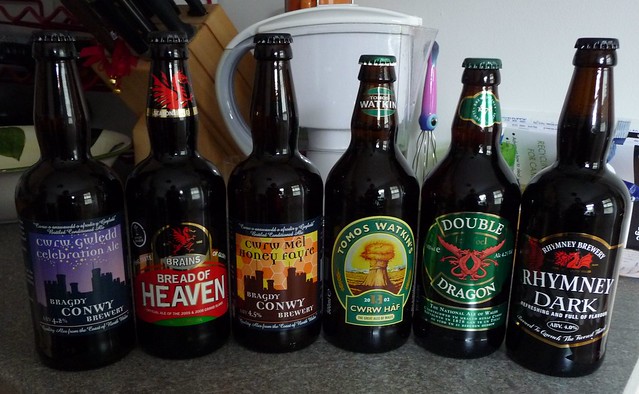Words for part, portion, piece, thing and related words in Celtic languages.
Words marked with a * are reconstructions.

| Proto-Celtic |
*rannā = part |
| Old Irish (Goídelc) |
rann = part (of a whole)
randatu = the property of belonging to a part of speech
rannaid = to divide (into parts), to apportion
ranngabáil = participle |
| Middle Irish (Gaoidhealg) |
rann, rand, ran, rán = part, lot, portion, faction, alliance |
| Irish (Gaeilge) |
rann [ɾˠanˠ] = part, side (in dispute), partition
rannach = apportioning, sharing, open-handed
rannadóir = divider, sharer
rannán = division
rannóg = section
rannpháirt = participation, part, share
roinn = share, portion, distribution, dealing, trading, division |
| Scottish Gaelic (Gàidhlig) |
rann [r̪ˠaun̪ˠ] = stanza, quatrain, verse, bond, deed, division, part, portion, section
rann-phàirt = participation, portion, participle
roinn [r̪ˠɤin̪ʲ / r̪ˠɤn̪ʲə] = dividing, partitioning, section, share, allotment, partition, department, division
roinneadair = divider, divisor, sorter |
| Manx (Gaelg) |
rheynn = divide, classify, distribute, dispense, share
fo-rheynn = section
so-rheynn = divisible |
| Proto-Brythonic |
*rrann = part |
| Middle Welsh (Kymraec) |
rann = part |
| Welsh (Cymraeg) |
rhan [r̥an] = part (of something), portion, division, element, constituent, component
rhanadwy = divisible, dividend
rhanedig = shared (out), divided, parted, split, separate
rhannu = to divide, separate, part, divide |
| Old Cornish |
radn = part, portion |
| Cornish (Kernewek) |
radn = lot, part, portion, role, share
ranna = to share |
| Middle Breton (Brezonec) |
rannaff = to share, separate, divide, pronounce, split |
| Breton (Brezhoneg) |
rann [rãnː] = part, fraction, division, slot
rannañ [ˈrã.nːã] = to share, separate, divide, pronounce, split
ranned [ˈrã.nːet] = dividend
ranngalon [ʁɑ̃nˈɡɑːlɔ̃n] = deep sorrow, desolation, heartbreak
rann |
Etymology: from the Proto-Indo-European *per- (to sell) [source], which is also the root of such English words as depart, jeopardy, parcel, part, partition and portion [source].
| Proto-Celtic |
*kʷezdis = piece, portion |
| Old Irish (Goídelc) |
cuit [kudʲ] = part, portion, share
cuit adaill, cuit adíll = a passing visit, a brief visit
cuitigid = to share, partake |
| Middle Irish (Gaoidhealg) |
cuit = share, part, portion
cuit(gi)d = to share, partake, participate |
| Irish (Gaeilge) |
cuid [kɪdʲ] = part (of whole), share, portion, some,
cuideach = wealthy, prosperous
cuideachta = company, companionship, social amusement, fun
cuideachtaigh = to bring together, associate
cuideachtúil = companionable, sociable
cuideachtúlacht = sociableness
cuidí = component
cuidigh = to share, help, requite, repay (usually for misdeed), do for, do away with
cuiditheoir = helper, supporter, seconder
cuidiú = to help, assistance
cuidiúil = helpful, cocky, conceited |
| Scottish Gaelic (Gàidhlig) |
cuid [kudʲ] = portion, share, allotment, ration, effects, means, belongings, some (people), accommodation, victuals
cuid-eigin [kudʲegʲɪn] = someone, somebody
cuideachail [kudʲəxal] = helpful, constructive, subsidiary
cuideachair [kudʲəxɛrʲ] = auxiliary, helper
cuideachas [kudʲəxəs] = help, suppprt
cuideachd [kudʲəxg] = company, society, throng, troop; also, too, jointly, together
cuideachdadh [kudʲəxgəɣ] = accompanying
cuideag [kudʲag] = small portion / share |
| Manx (Gaelg) |
cooid = certain, some, stuff, assets, goods, helping, means, part, possessions, proportion, resources
cooidjagh = accompanying, jointly, together, inclusive
cooidjaghtagh = companion, companionable |
| Gaulish |
*pettiā, = (?) |
| Pictish |
*ᚚᚔᚈ (pit) = (a parcel of) land, a portion (?) – found in placenames like Pitlochry |
| Proto-Brythonic |
*peθ = part |
| Old Welsh (Kembraec) |
ped = thing, object |
| Middle Welsh (Kymraec) |
peth = thing, object |
| Welsh (Cymraeg) |
peth [peːθ] = thing, object, material, suff, substance, device, instrument, personal possessions, belongings, tools, equipment, something, anything
peth(eu)ach = (unimportant) things, trifles
pethdod = thingness, thinghood, reality, substantiality
petheiddio = to reify, make real or concrete |
| Middle Cornish (Cernewec) |
peth, pêth, peyth, pŷth = thing, something, article
pethow = things, riches, wealth |
| Cornish (Kernewek) |
pyth, peth [pɪːθ / pɛθ] = commodity, material, matter, possession, property, thing, that which, what, appliance
pyth ha da, peth ha da = possessions
pythek, pethek = concrete
pythow, pethow = belongings, wealth |
| Middle Breton (Brezonec) |
pez, pezz = piece, bit, part |
| Breton (Brezhoneg) |
pezh [peːs] = piece, bit, room, part, what
pezhiad = (big) piece, piece (of)
pezhig = (an) ugly piece |
Etymology: unknown, possibly borrowed from a non-Indo-European substrate source [source]. Words from the same roots via Gaulish *pettyā and Latin pettia (piece, portion), include piece in English, pièce (room, patch, piece, play, document) in French, peza (piece, fragment, part) in Galician, pieze (piece, part) in Spanish, biisi (song) in Finnish, and ピース (pīsu – piece) in Japanese [source].
| Middle Irish (Gaoidhealg) |
písa, pissa = piece, fragment, coin |
| Irish (Gaeilge) |
piosa [ˈpʲiːsˠə] = piece, bit, patch, piece-work, literary or musical composition, coin
piosaáil = to piece together, patch |
| Scottish Gaelic (Gàidhlig) |
pìos [piːs] = bit, piece, sandwich, piece, (musical) composition, hunk (person)
pìosach [piːsəx] = in pieces / fragments
pìosail [piːsal] = sexy, attractive
pìosan [piːsan] = small piece / bit |
| Manx (Gaelg) |
peesh = bit, cutting, patch, piece, length (of thread), parcel |
| Cornish (Kernewek) |
pis = piece |
Etymology: from Middle English pece (piece, morsel, bit), from Anglo-Norman piece (piece, bit, part), from Late Latin petttia (piece, portion), from Gaulish *pettyā, from Proto-Celtic *kʷezdis (piece, portion) – see above [source].
| Proto-Celtic |
*darnos, *darnā = piece, part |
| Old Irish (Goídelc) |
drécht [dʲrʲeːxt] = portion, part |
| Middle Irish (Gaoidhealg) |
drecht, drécht = part, portion, section; poem, literary composition
dréchtach = numerous; skilled in song or poetry
dréchtfaid = to divide up |
| Irish (Gaeilge) |
dréacht [dʲɾʲeːxt̪ˠ]= part, portion, draft, detachment, number; (literary) piece, composition; draft
dréachtach = composer, poet; skilled in/diligent at compostion
dréachtaigh = to draft
dréachtín = versicle, stanza
dréachtóir = drafter, draughtsman (of documents) |
| Scottish Gaelic (Gàidhlig) |
dreachd [drɛxg] = draft
dreachd-aithisge = draft report
dreachd-dhealbh = working drawing |
| Manx (Gaelg) |
draght, dreaght = draft
draghtey = to draw up
dreaght feeleeaght = a piece of poetry |
| Gaulish |
*darnā = piece |
| Proto-Brythonic |
*darn = piece (?) |
| Middle Welsh (Kymraec) |
darn = piece, fragment, part
darnaw, darnio, darnu = to break or tear in pieces |
| Welsh (Cymraeg) |
darn [darn] = piece, fragment, part, coin, passage
darn(i), darnu = to break or tear in pieces
darn(i)edig = broken or torn to pieces
darniog = broken, shattered, fragmentary |
| Middle Cornish (Cernewec) |
darn = fragment, piece
pethow = things, riches, wealth |
| Cornish (Kernewek) |
darn = bit, fragment, part, piece
darnas = portion |
| Middle Breton (Brezonec) |
darn = fragment, part
darnaou = broken, very tired
darnaouet = torn to pieces, very tired, bored |
| Breton (Brezhoneg) |
darn [peːs] = fragment, part, some
darnan, darnañ = to fragment, chip, shorten
darnaou = broken, very tired
darnaouin = to break
darnek = partial |
Etymology: from PIE *der- (to split, separate, tear, crack, shatter). The French word darne (steak, fillet) was borrowed from Breton darn (fragment, part, some). Words from the same PIE root include dermal, tear and tier in English, and tirar (to throw) in Spanish, zehren (to live on, feed on, undermine, wear out) in German, and драть [dratʲ] (to tear to pieces) in Russian [source].

Sources: Wiktionary, Am Faclair Beag, Online Manx Dictionary, Teanglann.ie, eDIL – Electronic Dictionary of the Irish Language, In Dúil Bélrai English – Old Irish glossary, An Etymological Dictionary of the Gaelic Language, Geiriadur Prifysgol Cymru, Gerlyver Kernewek, Dictionaire Favereau, TermOfis, English – ProtoCeltic WordList (PDF), Etymological Dictionary Of Proto Celtic













